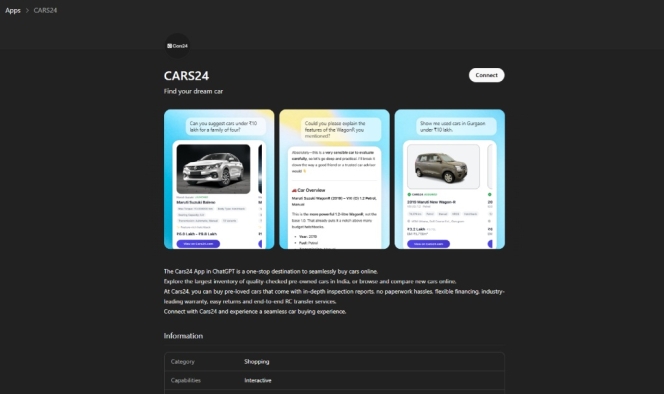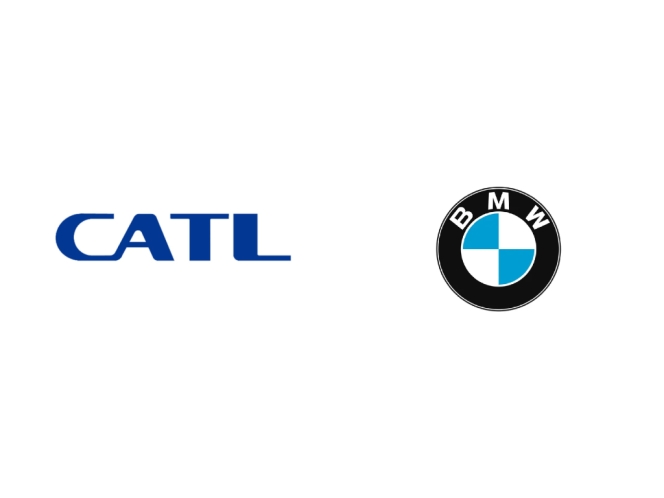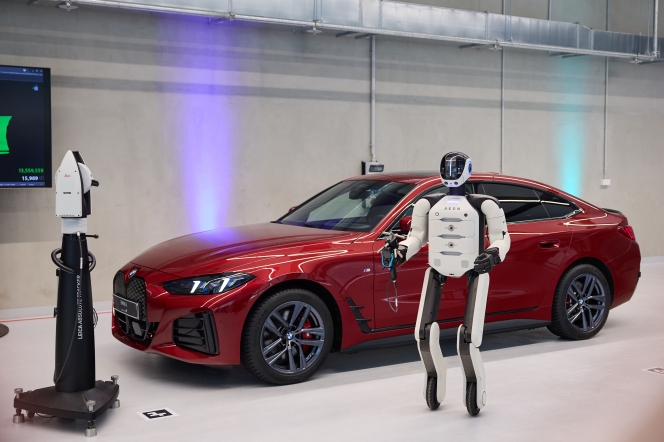The Future Mobility Conference 2023 Is A Bright Success
- By Bhushan Mhapralkar
- July 14, 2023

Held on 6 July 2023 and 7 July 2023 at the ‘Feathers – A Radha Hotel’ in Chennai, the Future Mobility Conference 2023 turned out be a big success. First of its kind to be organised by Motoring Trends magazine with the support of SLACMA, ATMA, ASDC, TAITRA, ARAI and SAEIndia, the conference attracted auto industry leaders, analysts, and academia veterans in the field of engineering. Over 170 delegates made it to the two-day event from companies like Mercedes-Benz, Ford, Mahindra & Mahindra and others. Announcing the start of the conference, anchor Shilpa Menon spoke about mobility and the challenges as well as technologies associated with it.
In his inaugural address, Bhushan Mhapralkar, Editor, Motoring Trends, spoke about the factors that led up to the organising of the Future Mobility Conference 2023. He mentioned about the inputs received from various industry stakeholders and how the theme ‘Automotive Outlook 2030’ for the conference as finalised. The Chief Guest of the event, Professor Satya Chakravarthy of IIT Madras, and Founder & CEO of ePlane Co, spoke about the efforts to develop future mobility technologies that would truly address the needs of the users. He referred to intelligent drones, hyperloops and electric planes. Stating that flying taxis or ambulances could form an integral part of future mobility, he said that they will contribute to vertical elevation in view of the road congestion and other challenges.
Special invited guest, Gopalakrishnan VC, Director – Automotive & EV Sector, Government of Telangana, could not make to the event due to personal reasons. VG Ramakrishnan, Managing Director, Avanteum Advisors, set the tone by stressing on the challenges and opportunities that future mobility would present. Touching on electro-mobility and ‘connected and autonomous’ vehicles as key contributors to future mobility, he drew attention to the rapid pace of developments in the mobility space. “It may have taken 100 years to evolve until now, the same amount of journey will be achieved in the next one decade alone,” he said. The inaugural ceremony ended with the lighting of the lamp.
The first session of the conference -- Electrification of vehicles – saw Jayapradeep Vasudevan, Chief Business Officer, Raptee, speak about EV landscape and the opportunities in two-wheelers. He drew attention to the greater issue of pollution, which is contributed by the mobility sector or the transportation sector, and said, “In view of the government goals and initiatives, the transition to electric two-wheelers has been slow in India.
Speaking on electrification in the logistics industry, Uday Narang, Founder and Chairman, Omega Seiki Mobility, mentioned about the two are complimenting each other. Observing that the logistics industry will boost EV adoption, Narang drew attention to the penetration of electric commercial vehicles in the last mile segment.
Girish N Ramaswamy, Head of Engineering, Vitesco, said in his presentation that legislation will continuously focus on eliminating CO2 emissions in terms of how the future vehicle markets shape up. He stated that gram CO2 per kilometer has been reducing and by 2027 and BEV and PHEV models will outnumber ICE models.
The second session of the conference – Future of Manufacturing Technologies – saw L J Clement Ravi, Head – Project Planning, Ashok Leyland, speak about efficient manufacturing in VUCA using contemporary, smart and sustainable manufacturing technology. He drew attention to mega trends such as EVs and other alternative fuel vehicles; connected vehicles; autonomous vehicles, and shared/MaaS mobility.
Stating that the global manufacturing market will reach the USD 44.4 trillion mark by 2024 and will contribute 19 percent increase in global production output, Dr Srini Venu, Director, Power Gear Sustainability Pvt Ltd, commented that that manufacturers should protect operating profit as the industry average EBITDA margin declined from 11.2 percent in 2015 to 8.6 percent in 2018.
The third session of the conference – Autonomous & Connected Vehicles – saw Sadananda Bondade, Head – R&D (Telematics, Architecture and Networking), Continental Automotive India, speak about connected vehicles and telematics technology. He referred to key opportunities and challenges and stressed on the importance of software defined architecture and the way it is growing.
Ravikumar Reddy, Head – Bangalore Division, DEP India, spoke about revolutionising product design and development of sustainable future vehicles using advanced simulation techniques. He stressed on environmental and fuel challenges, which are driving countries to adopt new innovations and technologies to provide better mobility solutions.
In his presentation, Ramanathan Srinivasan, Managing Director, Automotive Test Systems, mentioned that testing and validation of ADAS systems for Indian conditions involves unique driving scenarios, captured through in-car data acquisition and scenario generation. Referring to various sources such as sensor measurement data, camera sensor, GPS sensor, accident database and open data sheets, Ramanathan showed a scenario generation sample gathered from a Chennai piece of road.
Durgadutt Nedungadi, Senior Vice President – India and International Business, Netradyne, spoke about the role of AI technologies to redefine road safety. He commented that road safety is of major concern to India and costs two to three percent of the GDP. Stating that driver behaviour is the centre point, Nedungadi averred that his company is leveraging deep tech to revolutionise road safety.
The first session on the second day – Reduction of Carbon Footprint – saw Meenakshi Sundaram, Chief Technology Officer (Advanced Engg.), Amalgamations Components Group, speak about sustainable electric powertrain for two-wheelers and three-wheelers in India. Raising the question of how a sustainable electric powertrain could be defined, Sundaram said, “It is aspects like long life of an electric powertrain in comparison to an ICE powertrain that hold the key.” “Also, the quality and reliability of the powertrain, and the speed and cost parity of an EV powertrain in comparison to an ICE powertrain,” he added.
D Rajesh, Vice President, Volvo Group Trucks Technology, spoke about his company’s global R&D efforts and that India is the second biggest after Sweden. Highlighting long-term ambition of his company in the form of three points: 100 percent safe (zero accidents), fossil free and productive (optimised transport flows) future, Rajesh said the focus continues to be on battery electric, fuel cell and ICE (bio-LNG, other bio fuels and hydrogen) with the intention to break free of fossil fuels by 2040.
Panindar Mecharla, Area Manager Sales, European Trailer Systems, spoke about lightweighting of trucks and trailers to increase payload. He highlighted his company’s long experience in the field of trailers and expressed that it has been offering sliding roofs for trailers since 1969.
The second session on the second day – Future of Tyres and Testing – saw Renji Issac, Senior Vice President and Head of R&D and Technology, CEAT Tyres, speak about fuel efficient tyres and they are contributing to a sustainable future. He drew attention to the chemistry behind tyre manufacture and highlighted the progress achieved until now. Stating that low resistance tyres would facilitate the growth of EVs and alternative fuel vehicles, Issac said, “The rise of non-pneumatic tyres and the attention it is getting from all the tyre makers around the world, the future looks exciting.”
Claude Rouelle, President, Optimum G, spoke about tyre characteristic optimisation driven by vehicle level metrics. He mentioned that his company provides end-to-end tyre services, including testing, supervision, design procedure, tyre modelling and tyre simulation.
Balamurugan Ravichandran, Technical Manager – India (Sound, Vibration, Test and Measurement), HBK, spoke about the futuristic approach in EVs, NVH and product physics testing. He pointed at scalable, flexible, and distributable solutions his company provides in terms of the requirements in the present-day testing scenarios.
Brahmanand Patil, President and Managing Director, Vector Informatik India, spoke about software testing and vehicle architecture for the future. He averred that the future is software intensive and replete with computers as control units and CAN-Bus, FlexRay or ethernet as the communication arteries.
The last session of the conference – Future of EVs 2.0 – saw Hemal Thakkar, Director – Consulting, Crisil, speak about vehicle electrification. He highlighted EV landscape against factors like a global economic growth that is expected to taper amid elevated interest rates.
Kaushik Madhavan, Vice President and Head of Consulting – Automotive, Markets and Markets, spoke about Growth Opportunities in the e-mobility ecosystem. He highlighted the EV value chain and ecosystem shift towards dynamic customer driven approach with complex GTM requirements.
Atul Patil, Vice President, PIN 365 (the organisation that publishes Motoring Trends and Tyre Trends magazines), gave the vote of thanks to all those who made this conference happen. He also thanked his team and the event sponsors, CEAT Tyres, Continental Automotive India, Detroit Engineered Products, Automotive Test Systems and Optimum G.










Comments (0)
ADD COMMENT